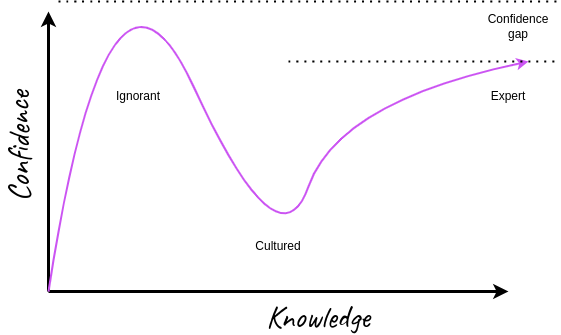Dunning-Kruger effect

The Dunning-Kruger effect describes a cognitive bias where individuals with limited knowledge or competence in a particular area tend to overestimate their own ability. In contrast, those with greater expertise often underestimate their relative competence, assuming tasks that are easy for them are easy for others as well.
This happens because the skills needed to perform well in a domain are often the same skills required to accurately assess one’s performance. Without sufficient knowledge, a person lacks the ability to recognise their mistakes or gaps in understanding, leading to inflated confidence.
In practical terms, this bias can affect decision-making, hiring, and team assessments. It highlights the importance of continuous learning, external feedback, and fostering an environment where questioning assumptions and acknowledging limitations are encouraged.
Understanding this effect helps in recognising when overconfidence might be masking a lack of expertise, allowing for better judgement in leadership and strategy.
References
Share on X (Twitter) Share on LinkedIn Share on Facebook